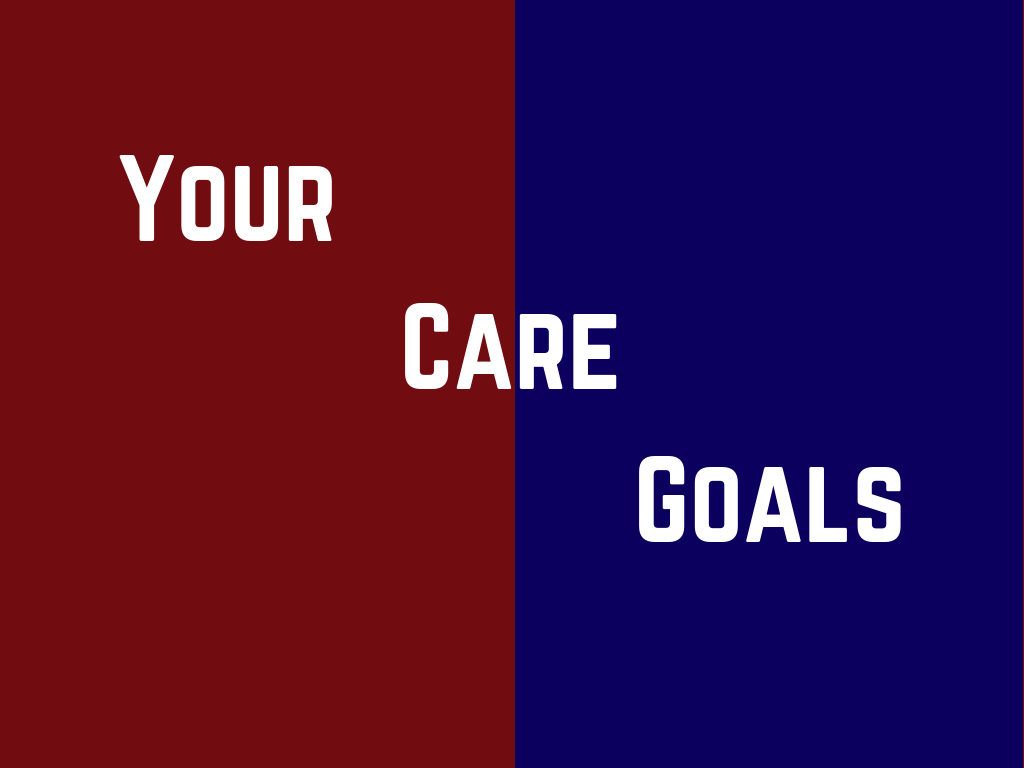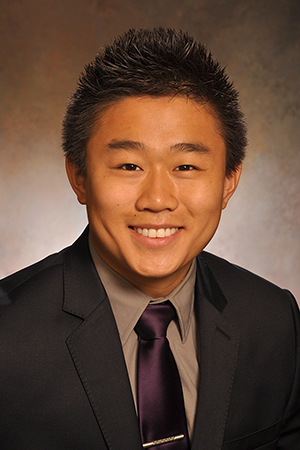Your Care Goals: Personalized Goals of Care and POA
by Michael Cui

Combining machine learning to evaluate a patient chart and then give personalized counseling for patients to designate their power of attorney and determine their goals of care.
Chicago, IL United States Patient and Provider Tools Blockchain Diagnostics AMIA challengeAbout our project
The problem we solve: Many patients enter the hospital without a designated power of attorney. In emergency situations, its often hard for family members to decide on what medical therapy the patient would have wanted. Additionally, a patient wishes are often unknown. This leads to emotional distress for family members, harm for patients, and potentially unnecessary medical care.
About our solution: Our solution will employ machine learning to help analyze a patient's medical record and provide a guided goals of care discussion for each patient. The program would help a patient decide on what medical therapies he/she would want. Additionally the program would help each patient designate a power of attorney. The end result is a designated point person who can speak on the patient behalf and a patient documenting his/her known wishes. The code status and POA will be stored on blockchain so all healthcare professionals can have access to the same data.
Progress to date:
Currently the program is in its idea phase. We are working with palliative care specialists to help determine feasibililty of the program. Our next step is to recruit a team of computer scientists to help build out the machine learning algorithm.
About Our Team

Creator: Michael Cui
Location: Illinois
Bio: I finished my Internal Medicine Training at University of Chicago. I am currently a Clinical Informatics Fellow at University of Chicago. My research interest revolves around leveraging technology to improving clinical workflows, patient engagement, and patient outcomes. I am currently pursuing a Masters of Science in Biomedical Informatics and also a Masters of Business Administration at University of Chicago.
Hospital Affiliation: University of Chicago
Title: Co-Founder
Advanced Degree(s): MD
About Team Members
David Liebovitz
Co-Founder, MD
Biography: David Liebovitz research focuses on improving electronic medical records in areas of patient safety, health care quality and application usability. His work has included approaches to improve clinician cognitive support, automated learning strategies to enhance patient privacy, and specific decision support tools for medication safety, laboratory results and problem lists.
Title: Co-Founder
Advanced Degree(s): MD
About Our Company
Your Care Goals
Location: 5457 S. Ingleside
Apartment 1E
Chicago, IL 60615
US
Founded: 2018
Product Stage: Idea
Employees: 1-2
How We Help Patients
Patients often don't talk about their end of life wishes until they are too late. We want to allow every patient to get the care they want. Our innovation will allow patients to document their wishes and ensure their wishes are followed. The machine learning program will help tailor the conversation to each patients unique medical history and conditions.
How We Help Physicians
Physicians and other healthcare workers often do not have the time to explore a patients wishes when it comes to their code status and power of attorny. When a patient is in front of you and is struggling to breath, discussing their future wishes often takes a back seat. Our intervention would help offset some of the burdens on physicians.
How We Help Hospitals
Patients are often admitted into the hospital with a power of attorny designated or with an unknown code status. In the case of a sick intensive care patient, the physician usually opts to provide maximum medical therapies regardless of whether the patient would have wanted all of the care or not. This can result in prolonged hospital stays, increased costs, but more importantly unnecessary care that the patient may not have wanted. With a code status and POA documented this would save hospitals countless dollars.
Challenge Mission
Affiliation(s)
Dr. Michael Cui is a Clinical Informatics Fellow at University of Chicago under the direction of Dr. David Liebovitz.Key Milestones Achieved and Planned
Currently we have formed the idea. In the next three months we hope to refine our idea and locate the necessary team members. Within 6 months we hope to have IRB approval to build and study the intervention on a patient population. In 1 year we hope to have the innovation completed and we hope to being studying the innovation's impact on patients.Our Competitive Advantages
Currently most code status and power over attorney conversations happen in person. Sometime the patient does it with their family, or the physician will help assist during a clinic visit. Online intervention for patients exists but they are not tailored to a patients medical condition. If a patient has a terminal disease, the conversation would be very different than if the patient was relatively healthy. Our innovation would be able to tailor the conversation based around a persons medical history. The result is a more personalized conversation and more informed decision making.Barriers to Entry
The machine learning program is likely something that we are able to patent. Additionally we could have early mover advantage by having the most patients stored on our blockchain.Funding, Partners and Alliances To Date
Currently we have not accepted any funding. We are planning to bootstrap the project until we get a minimal viable product and are able to test its efficacy.Innovation Details
Intellectual Property Summary
We have kept the description broad and have not revealed any details about the machine learning program.
Clinical Information
Currently there are no studies. We will be studying the innovation after it is developed on its efficacy and patient satisfaction.
Regulatory Status
Most likely the program will not be subject to FDA regulation. The program will comply with all privacy rules and will be HIPAA compliant
How we will use the funds raised
To develop the minimal viable product and test for clinical efficacy.
Thank You
Thank you so much for your support. We believe that every patient should be treated according to their wishes. Families often don't talk about these issues until it is too late and physicians are often too busy. We want to step in to much sure that everyone gets the treatment he/she desires.
Updates
No updates found .
Supporters
Help us find best new ideas to fund by telling us what you think. Your feedback goes straight to the team behind this project in private, so tell them what you really think.
Index Score
57
Score
0
Score
2
Likes0
Partners0
Pilots0
Follows-
This campaign has ended but you can still get involved.See options below.
Help us find best new ideas to fund by telling us what you think. Your feedback goes straight to the team behind this project in private, so tell them what you really think.



